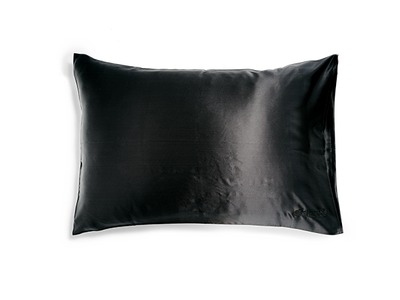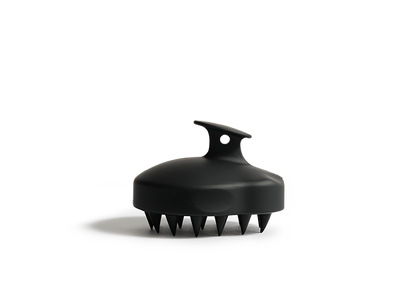Ever heard of the saying ‘sweater weather is better weather’? As we say our final goodbyes to summer 2020, it’s important to note that transitioning to the fall and winter months can confuse your hair, including your hair texture, type and condition -- what we believe is the foundation for healthy hair care. We had a discussion with some of our lead chemists to better understand how to adapt your hair to temperature changes, and here is what they had to say on this topic:
Dry, Brittle Hair
Humidity changes can have a strong impact on your hair - including pulling moisture from your hair. Dry, flat hair naturally comes with colder weather and leaves your locks crying out for moisture. With this in mind, it is important to add a hair mask or oils such as Jojoba oil and Avocado oil, and change your shampoo + conditioner formula so your hair can adjust to the change in temperatures and secure hydration in your strands. For added hydration, we also recommend slowing down on the shampoo and condition more instead. Seasonal change means wash routine change!
Static, Frizzy Hair
Although frizzy hair is typically associated with humidity, static frizz is known to be an issue caused by heat & friction from wearing hats. Thus, we like to incorporate oils and butters to formulations in order to enhance your hair’s natural luster, while forming protection around your strands to help with moisture, add shine, and block out the damage that causes frizz in the first place.
Flat, Lifeless Hair
As the weather gets colder and humidity naturally decreases, it may result in your hair to get flat. You may want to invest in a volumizer to give your roots that much needed boost. We recommend washing frequently to clear out build up. We also want to note that by wearing winter hats, you don’t give your hair the break it needs, and depending on the textile of the hat, it can damage the hair. In addition, heating systems in homes dry out the hair, so we urge you to give your hair a boost by nourishing it with extra conditioning. We suggest letting your hair air-dry and then break up your hair with your fingers to add texture and extra body.
Itchy Scalp
When your environment changes, you may start to suffer from a dry scalp. In order to keep those flakes at bay, we usually include ingredients such as Honey and Aloe Vera to add extra moisture and energize your scalp to relieve any discomfort you may be experiencing.
Additional recommendations from our in-house team:
You Are What You Eat
It is said that your hair health is directly related to what you eat. So, a critical aspect of hair management in winter is ensuring that you are consuming enough fruits, vegetables & protein! In winter, we tend to eat more unhealthy food, so it is vital to be mindful of your food consumption. Incorporating more leafy greens, nuts and seeds, carrots and sweet potato, winter fruit & eggs is key to not only maintaining healthy hair, but also helping boost your energy levels and improving your metabolism.
Water Water Water
This may be somewhat obvious, but we tend to not drink as much water in the winter months. Drinking enough water will strengthen your hair, increasing growth. Aim to consume 3 liters of water a day for maximum benefits.
Are you ready to upgrade your hair routine for the fall season? Click here to start customizing!

 The Starter Set
The Starter Set
 Reorder
Reorder
 Silk Pillowcase
Silk Pillowcase
 Scalp Massager
Scalp Massager


